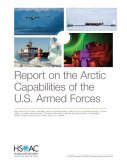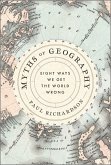In this report, the authors explore the equities of four middle powers--Australia, Canada, Japan, and the United Kingdom--and the roles that they might play in deterring or limiting conflict between China and Taiwan over the Taiwan Strait. A country's equities are its long-term interests in a scenario, such as a cross-Strait conflict. Middle powers are nations that are not small but lack the sheer size and influence to significantly disrupt the global order. However, middle-power countries can influence international affairs through mediation and institution-building, and middle powers can also play a balancing role between adversarial great powers. The authors use four countries--Australia, Canada, Japan, and the United Kingdom--to conduct a case-study analysis on how middle powers perceive China's interests and their own nations' interests in a cross-Strait conflict. The authors held discussions with analysts and policymakers from each middle-power nation on such topics as whether these nations would support Taiwan in a cross-Strait conflict, the threats that China might perceive from these nations, and whether the respondents think that China would initiate a conflict with Taiwan. The authors supplemented these discussions with an open-source literature review on how middle powers have been defined historically to support their analysis of each middle power's equities in a potential cross-Strait conflict. Finally, the authors offer several recommendations for future middle-power strategies that might be useful to policymakers in Taiwan, the United States, and middle powers with a stake in the Asia-Pacific region.
Hinweis: Dieser Artikel kann nur an eine deutsche Lieferadresse ausgeliefert werden.
Hinweis: Dieser Artikel kann nur an eine deutsche Lieferadresse ausgeliefert werden.








